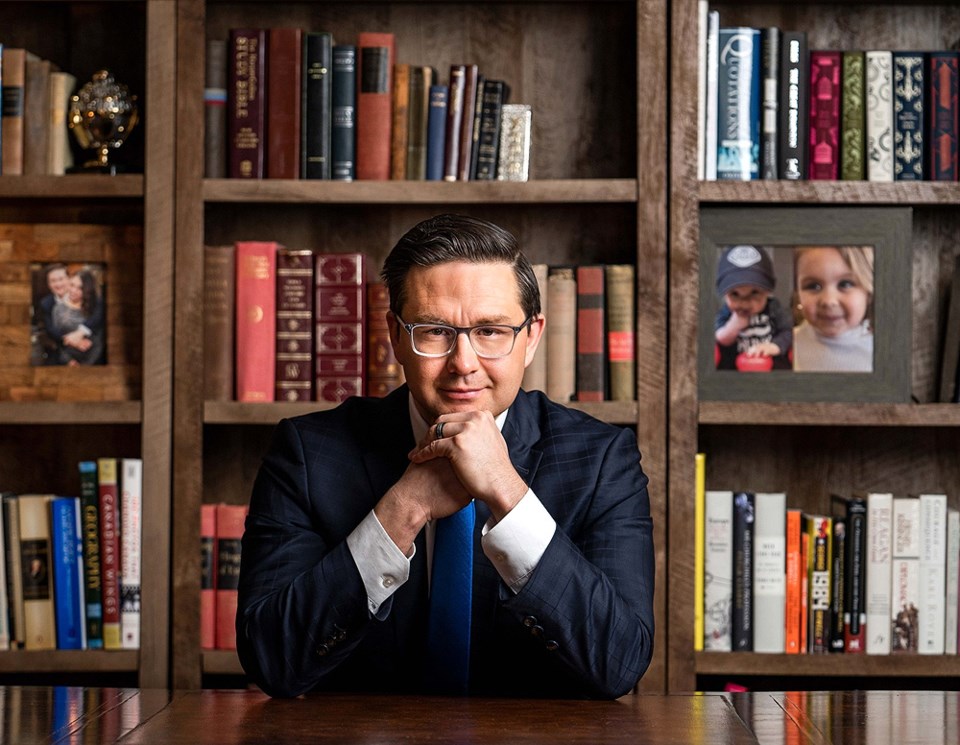It’s been rare for the Estevan area to have a visit from a sitting or a future prime minister.
Stephen Harper was actually here on multiple occasions, including once when he was the PM in 2008 to announce the federal government’s support for carbon capture and storage technology at the Boundary Dam Power Station.
And Paul Martin was here long before he became the prime minister. That was through his friendship with the late Bernie Collins, who represented the Souris-Moose Mountain constituency as a Liberal in the 1990s.
So the 100 or so people who were invited to Jason LeBlanc’s farm west of town last Wednesday to hear from Pierre Poilievre might have had a rare opportunity.
We’re years from finding out whether he will actually get the top job.
Poilievre has said he is a candidate to be the prime minister of Canada and has used Pierre for PM for his website address. He definitely isn’t lacking in confidence. But he’s running to be the leader of the federal Conservative Party, and not to be the prime minister. (Although that could still happen).
There are a lot of people who have been at the helm of the Conservative Party – and the Liberal Party, for that matter – who never became prime minister of our country.
Party supporters have certainly rallied behind him. He had a great turnout for his public appearances, with thousands of people at many of them. And he has made lots of appearances. During his two days in Saskatchewan last week, it was a whirlwind tour to numerous communities. Not only did he go to Regina and Saskatoon, he visited Weyburn, Moosomin, Moose Jaw, Prince Albert, North Battleford and Lloydminster.
It leaves a positive impression, especially with those in rural communities, who typically get ignored by party leaders or leadership candidates. They’ll remember that Poilievre was in their community and took the time to answer questions, even after the voting has started, while the other candidates spent time in the bigger markets or in areas closer to home.
It helps his cause that Patrick Brown – the man most people believed to be the toughest challenger to Poilievre – was disqualified after the voting for the leader had already started.
There were some in the party who had high hopes for Jean Charest – the former head of the federal Progressive Conservative Party and a former Quebec premier – but he hasn’t done much to stand out during the campaign. Frankly, I’ve found Charest to be a letdown in what was likely his final shot at the party’s leadership.
Whether Poilievre’s ideology translates to success in large urban centres – he’s definitely more conservative than former party leader Erin O’Toole – has yet to be seen. He’s drawn big crowds in the cities, but there are lots of people to draw from.
His critics will paint Poilievre as a Boris Johnson or even a Donald Trump. That’s a challenge he’ll have to overcome in a country that has traditionally elected moderates.
But Poilievre is undeniably an impressive individual. It’s not easy being elected as a Conservative in Ottawa, a city filled with public sector workers who might not be inclined to vote for the Tories.
He gets a lot of attention for his bluster and he’s not your stereotypical politician. He doesn’t always yield to diplomacy. He referred to one of the Tory leadership debates as a clown show. I doubt O’Toole or Peter MacKay would have said that.
He’s the favourite to win the Conservative leadership race, and deservedly so, especially now that Brown is out of the race. The message he has plays well with Conservative Party supporters. Will it resonate with those outside of the party during the next federal election, whether that be 2025 or some other year? That remains to be seen.
And we have to remember that Justin Trudeau might not be the Liberal party leader (and consequently the prime minister) when the next election rolls around. If the next vote is in 2025, that means he’ll have spent 10 years as PM – an eternity in this day and age. The pact between the Liberals and the NDP means that the Liberals will have plenty of time to find a new leader if Trudeau decides it’s time to move on.
Poilievre wants to be a prime minister. He’ll likely get the Tory leadership nod. But a lot will have to fall into place for him to take that biggest step of all and fulfill what he seemingly believes is his destiny.




